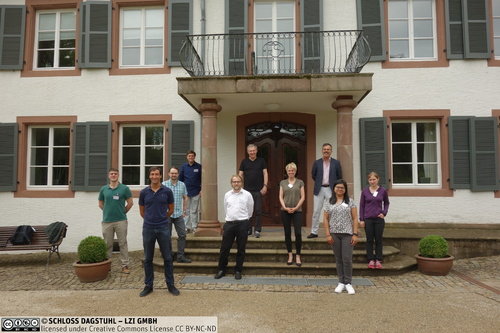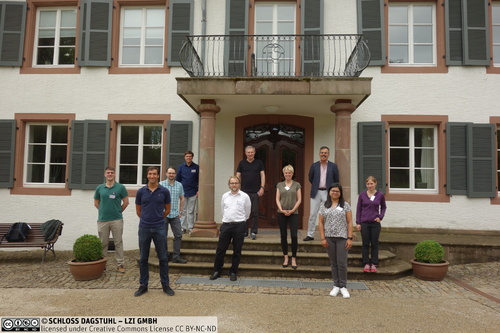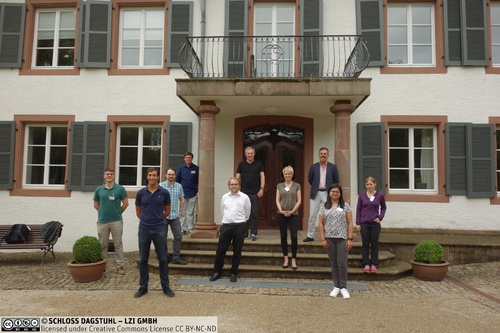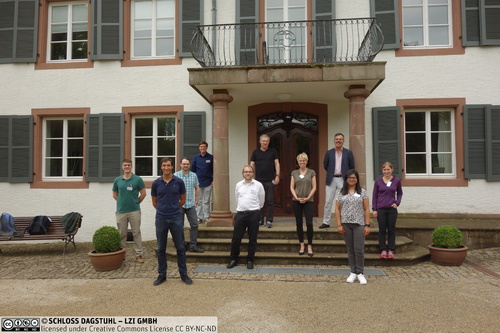Dagstuhl Seminar 21302
Approximate Systems
( Jul 25 – Jul 30, 2021 )
Permalink
Organizers
- Eva Darulova (MPI-SWS - Kaiserslautern, DE)
- Babak Falsafi (EPFL - Lausanne, CH)
- Andreas Gerstlauer (University of Texas at Austin, US)
- Phillip Stanley-Marbell (University of Cambridge, GB)
Contact
- Shida Kunz (for scientific matters)
- Annette Beyer (for administrative matters)
Resource efficiency is becoming an increasingly important challenge, especially due to the pervasiveness of computing systems and the diminishing returns from performance improvements of process technology scaling. At the same time, many important applications have nondeterministic specifications or are robust to noise in their execution. They thus do not necessarily require fully reliable computing systems and their resource consumption can be reduced by introducing or exposing approximations. While trading correctness for efficiency has been part of computing systems since the early days, it has seen renewed interest in the past decade. Different techniques have been since developed for applying and controlling approximations and the errors they introduce at different levels of the compute stack. Unfortunately, most of these techniques have been applied in isolation, making simplified assumptions about the other levels. It is thus unclear how all the different techniques interact, combine and complement or negate each other to provide end-to-end application benefits. Future work is needed to investigate error-efficient or approximate computing approaches systematically and holistically across all layers of the compute stack and for complete end-to-end system design examples. This Dagstuhl Seminar aims to bring together researchers from the different domains working on approximate computing, algorithms, programming languages, compilers, architecture and circuits, in order to explore open challenges and opportunities and to define cross-area research directions relating to an end-to-end application of approximate computing principles across the compute stack. The seminar will be structured around four application areas and application examples in embedded sensing and computation, robotics and control, scientific computing, and machine learning, which will serve as the focal points of discussions.
 Eva Darulova, Babak Falsafi, Andreas Gerstlauer, and Phillip Stanley-Marbell
Eva Darulova, Babak Falsafi, Andreas Gerstlauer, and Phillip Stanley-Marbell
Resource efficiency is becoming an increasingly important challenge, especially due to the pervasiveness of computing systems and the diminishing returns from performance improvements of process technology scaling. At the same time, many important applications have nondeterministic specifications or are robust to noise in their execution. They thus do not necessarily require fully reliable computing systems and their resource consumption can be reduced by introducing or exposing approximations.
While trading correctness for efficiency has been part of computing systems since the early days, it has seen renewed interest in the past decade. Different techniques have been since developed for applying and controlling approximations and the errors they introduce at different levels of the compute stack. Unfortunately, most of these techniques have been applied in isolation, making simplified assumptions about the other levels. It is thus unclear how all the different techniques interact, combine and complement or negate each other to provide end-to-end application benefits.
The aim of this seminar was to bring together researchers from different domains working on approximate computing, algorithms, programming languages, compilers, architecture and circuits, in order to explore open challenges and opportunities and to define cross-area research directions and collaborations relating to an end-to-end application of approximate computing principles across the compute stack.
The seminar consisted of brief presentations by a subset of the participants that covered the entire computing stack from hardware to applications, and that focused on the current challenges. The talks were followed by discussions in breakout groups that first focused on the different application areas of high-performance computing, embedded systems and deep learning, followed by group discussions on particular fundamental and cross-cutting challenges that were identified during the first breakout session. This report includes the abstracts of the participant's presentations as well as summaries of the breakout group discussions.
 Eva Darulova, Babak Falsafi, Andreas Gerstlauer, and Phillip Stanley-Marbell
Eva Darulova, Babak Falsafi, Andreas Gerstlauer, and Phillip Stanley-Marbell
- Hussam Amrouch (Universität Stuttgart, DE) [dblp]
- David Atienza Alonso (EPFL - Lausanne, CH) [dblp]
- Eric Atkinson (MIT - Cambridge, US)
- Andreas Burg (EPFL - Lausanne, CH) [dblp]
- Eva Darulova (MPI-SWS - Kaiserslautern, DE) [dblp]
- Lara Dolecek (University of California at Los Angeles, US) [dblp]
- Babak Falsafi (EPFL - Lausanne, CH) [dblp]
- Djordje Jevdjic (National University of Singapore, SG) [dblp]
- Debasmita Lohar (MPI-SWS - Saarbrücken, DE) [dblp]
- Jürgen Teich (Universität Erlangen-Nürnberg, DE) [dblp]
- Damien Zufferey (MPI-SWS - Kaiserslautern, DE) [dblp]
- Sara Achour (Stanford University, US) [dblp]
- R.Iris Bahar (Brown University - Providence, US) [dblp]
- Swarnendu Biswas (Indian Institute of Technology Kanpur, IN) [dblp]
- Peter Dueben (ECMWF - Reading, GB) [dblp]
- Andreas Gerstlauer (University of Texas at Austin, US) [dblp]
- Ghayoor Gillani (University of Twente, NL) [dblp]
- Jie Han (University of Alberta - Edmonton, CA) [dblp]
- Anastasia Isychev (TU München, DE)
- Vijay Janapa Reddi (Harvard University - Cambridge, US) [dblp]
- Gauri Joshi (Carnegie Mellon University - Pittsburgh, US) [dblp]
- Ulrich Kremer (Rutgers University - Piscataway, US) [dblp]
- Sasa Misailovic (University of Illinois - Urbana-Champaign, US) [dblp]
- Laura Monroe (Los Alamos National Laboratory, US)
- Sri Parameswaran (UNSW - Sydney, AU) [dblp]
- Adrian Sampson (Cornell University - Ithaca, US) [dblp]
- Olivier Sentieys (University & INRIA - Rennes, FR) [dblp]
- Phillip Stanley-Marbell (University of Cambridge, GB)
- Radha Venkatagiri (Oregon State University, US) [dblp]
- Norbert Wehn (TU Kaiserslautern, DE) [dblp]
- Georgios Zervakis (KIT - Karlsruher Institut für Technologie, DE)
Classification
- hardware
- programming languages / compiler
Keywords
- approximate computing
- energy-efficient computing
- pareto optimization





 Creative Commons BY 3.0 DE
Creative Commons BY 3.0 DE
